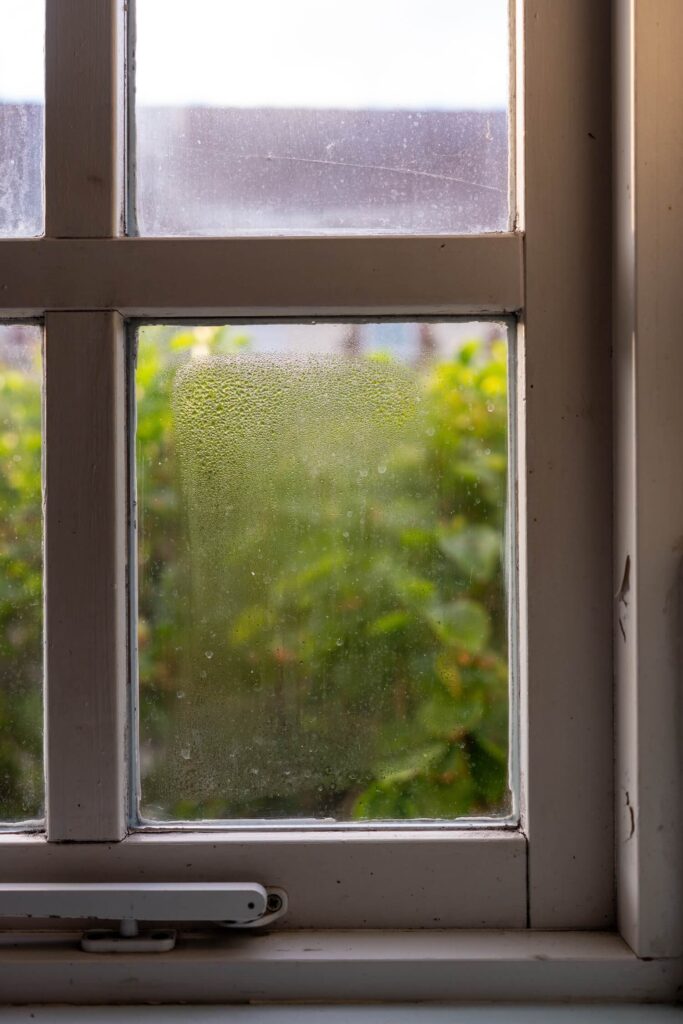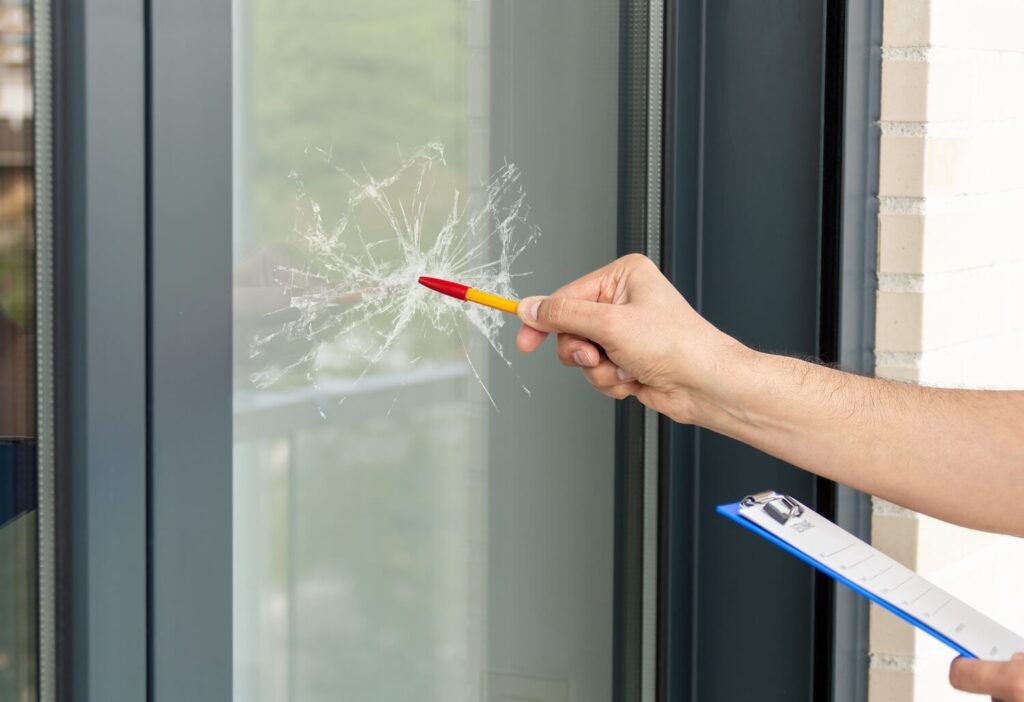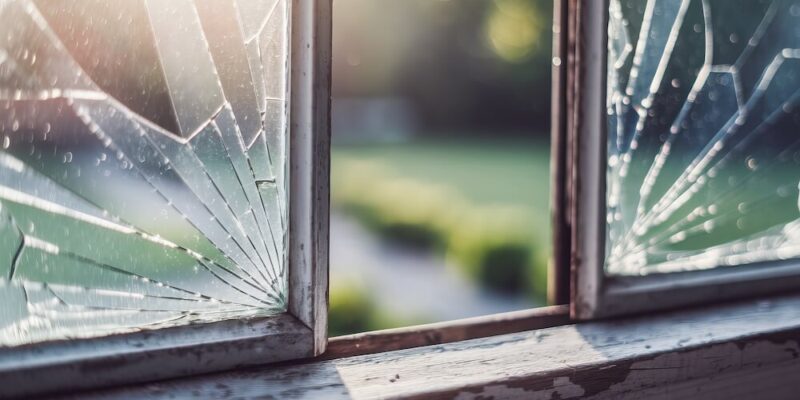We’ve all felt that deep sense of dread settle after spotting the dark thread of a crack in a pane of glass. Whether the crack is in a mirror, a kitchen backsplash or even a window, it’s impossible not to feel a spiral of doom from knowing this item is damaged and needs to be replaced.
But does it always need to be replaced?
Replacing glass items isn’t always cheap or convenient – it’s easy to see why the mere prospect of doing it is enough to ruin your day. But ignoring damaged glass can cause a whole host of other issues, some more costly. It can even pose a safety risk.
In this post, we’ll look at when you should replace damaged glass, and in what situations you can repair it instead. We’ll also look at glass maintenance tips to help you prolong the life of your glass and avoid unnecessary damage.
First, though, we’re going to look at the importance of dealing with damaged glass quickly.
Why do you need to replace damaged glass?
Regardless of where it is, if you spot glass damage, you need to address it as quickly as possible. Even small chips or cracks can make a significant impact on the strength and stability of a pane of glass, whether it’s in a window, a mirror or a glass splashback.
And once the stability of glass is compromised, that
glass becomes a safety risk. It is more likely to break and, depending on the type of glass used, this can be a significant health risk.
Certain types (like tempered glass) are designed to shatter into small pieces that are unlikely to cause harm, but standard non-treated glass can shatter into sharp shards that can cause deep cuts.
While this is the worst-case scenario, there are other risks to not repairing damaged glass. Damaged glass is weaker and easier to break, so if your window or external door ends up with cracks or chips then your house is left at increased risk
from intruders.
The final issue posed by damaged glass is towards your heating bills. If the integrity of your window or door is compromised by a crack, this can let cold air into your home and let hot air out. As well as creating an unpleasant draft, this will drag down the overall temperature of your home so you turn up the heating and increase your bills.
The quicker you repair your glass, the better your chance is of avoiding these issues. Delay dealing with it, and the problem is likely to get worse – possibly to the point that repairs are no longer an option.
 When to repair damaged glass
When to repair damaged glass
When trying to decide whether to repair damaged glass, there are many things you need to consider, including what damage has occurred, where the glass is being used and what type it is.
The type of glass alone can sometimes determine whether a repair is worthwhile or even possible. It will impact the chance of the repair being successful, how long it will hold and whether it will be too visually obvious to be worth the effort.
Assess your damaged glass to see if it fits the following criteria. If it does, you’ll likely achieve a successful repair.
- Glass with minor damage
The main consideration is the extent of the damage. A small chip or crack – smaller than an inch – can usually be repaired using resin. The resin won’t significantly compromise the strength or clarity of the glass and won’t ruin the look of the glass. In some cases, it could even be unnoticeable. - Single-pane non-treated glass
If the glass has not been treated to strengthen it, it’s a lot easier to repair, and you are much more likely to end up being able to lengthen the lifespan of your glass item. This holds true for both window repair, mirrors and general glass objects. - Decorative glass
It is also possible to repair decorative glass that has small imperfections. However, as it is so important to protect the aesthetic appeal of decorative glass so if it’s an intricate, old, or expensive item, you should seek professional advice before attempting to repair it. - Frosted glass
It is possible to repair frosted glass – as long as it meets the other conditions. However, you will need to take a couple of extra steps to make it match the look of the glass around it. If you don’t, your repair will be easy to spot.
When to replace damaged glass
If you’re still unsure whether your glass can be repaired, it can be helpful to know the situations that rule it impossible. If it meets the following conditions, avoid wasting time, money and effort on a repair and skip straight to replacing the pane.
- The glass is severely damaged
Glass that has significant damage (like multiple cracks or chips) is usually beyond repair. Its stability is so compromised that even the impact of the fix could cause further damage. Your glass may even shatter completely as a result.
Even if you manage to complete the repair, it won’t restrengthen or restabilise the glass for long. Certainly not long enough to be worth the effort. - The glass has been tempered or toughened
The tempering process intentionally creates a carefully calibrated stress distribution inside the glass. This increases its durability and should mean that tempered glass won’t crack at all. But if one does appear, that tension is completely compromised and you won’t be able to fix it without compromising it further.
Also, tempered glass is used in situations where it needs to meet strict safety standards (such as glass balustrades or glass walls). Any cracks or chips, however small, will compromise that stability. This means that the glass will no longer meet those safety standards, leaving it unfit for purpose. - If the glass is old
As durable as it is, we’ve already established that glass can’t last forever. If it is already 15 or more years old, it is a bad idea to attempt to fix it. While an undamaged window should last 20-25 years, it will weaken over time. And, when it does, any work done to repair it risks doing more damage than good.
The exception to this is historic or antique glass, but that should only be repaired by trained experts.
 How to Decide: Repair or Replace?
How to Decide: Repair or Replace?
So you’ve noticed a crack has appeared in a piece of glass in your home, and the doom has descended. How do you decide whether to attempt a repair or to just replace it?
Answer the following questions:
- How extensive is the damage?
- Is the glass in a high-impact location like a high-traffic door or an external window?
- How old is the glass?
- Is it treated or traditional glass?
If you’re still unsure, you can consult a professional for advice. This is a good option to explore for particularly large or delicate glass – anything that would be very expensive to repair. Otherwise, you may end up paying for advice, then paying for the repair anyway.
Should you repair your glass or replace it?
As you can see, there is no blanket answer to this question. When it comes to windows, there will be some undeniable signs that show they need replacing. But for other types of glass, you should consider the factors listed above before reaching for your wallet.
Of course, despite being a strong, safe and sustainable building material, glass won’t last forever. If you decide your damaged glass needs replacing, talk to our team to find out how we can help you find a replacement.

